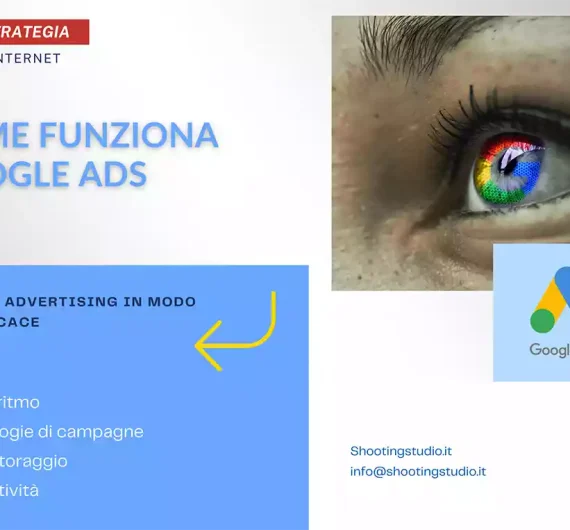“Evita gli errori e massimizza il tuo budget su Google Ads”
Introduction
Introduction: In questo articolo, esploreremo cinque errori comuni da evitare per non sprecare il budget su Google Ads. Seguire queste linee guida ti aiuterà a massimizzare il rendimento delle tue campagne pubblicitarie online e a ottenere risultati più efficaci.
Keyword Research Mistakes
Google Ads is a powerful tool for businesses looking to increase their online visibility and drive traffic to their websites. However, many businesses make common mistakes when it comes to keyword research that can end up wasting their budget and not yielding the desired results. In this article, we will discuss five errors to avoid in order to make the most of your Google Ads budget.
The first mistake to avoid is targeting broad keywords. While it may be tempting to go after high-volume keywords that are relevant to your business, these keywords often come with a high cost per click and can quickly eat up your budget without delivering the desired results. Instead, focus on long-tail keywords that are more specific to your products or services. These keywords may have lower search volume, but they are more likely to attract qualified leads who are ready to convert.
Another common mistake is neglecting negative keywords. Negative keywords are terms that you do not want your ads to show up for. By identifying and adding negative keywords to your campaigns, you can prevent your ads from being triggered by irrelevant searches, saving you money and improving the overall performance of your campaigns. Make sure to regularly review and update your list of negative keywords to ensure that your ads are only shown to the most relevant audience.
The third mistake to avoid is not conducting thorough keyword research. Many businesses make the mistake of relying on their intuition or assumptions when selecting keywords for their campaigns. However, keyword research should be data-driven and based on actual search volume and competition. Use tools like Google Keyword Planner to identify relevant keywords that have a good balance of search volume and competition. By conducting thorough keyword research, you can ensure that your ads are targeting the right audience and are more likely to drive conversions.
The fourth mistake to avoid is not testing and optimizing your keywords. Once you have selected your keywords and launched your campaigns, it is important to regularly monitor their performance and make adjustments as needed. Test different variations of your keywords, ad copy, and landing pages to see what resonates with your audience and drives the best results. By continuously optimizing your campaigns, you can improve their effectiveness and maximize your return on investment.
Finally, the fifth mistake to avoid is not tracking and analyzing your keyword performance. It is important to track key metrics such as click-through rate, conversion rate, and cost per conversion to understand how your keywords are performing and where you can make improvements. Use Google Analytics to track the performance of your campaigns and identify areas for optimization. By analyzing your keyword performance, you can make informed decisions about where to allocate your budget and how to improve the overall effectiveness of your campaigns.
In conclusion, avoiding these five common mistakes can help you make the most of your Google Ads budget and drive better results for your business. By targeting specific long-tail keywords, using negative keywords, conducting thorough keyword research, testing and optimizing your keywords, and tracking and analyzing your keyword performance, you can create more effective campaigns that attract qualified leads and drive conversions. Remember to continuously monitor and optimize your campaigns to ensure that you are getting the best possible return on investment from your Google Ads efforts.
Ad Copy Errors
Google Ads is a powerful tool for businesses looking to increase their online visibility and drive traffic to their websites. However, many businesses make common mistakes when creating their ad copy that can result in wasted budget and poor performance. In this article, we will discuss five errors to avoid in order to make the most of your Google Ads budget.
The first error to avoid is using generic ad copy that does not speak to your target audience. It is important to tailor your ad copy to the specific needs and interests of your target market in order to attract their attention and encourage them to click on your ad. Generic ad copy is unlikely to stand out from the competition and may not resonate with your target audience, resulting in wasted budget and low click-through rates.
Another common error is failing to include a strong call to action in your ad copy. A call to action is a clear instruction to the reader on what they should do next, such as “Buy now” or “Sign up today.” Without a strong call to action, potential customers may not know what steps to take after reading your ad, leading to missed opportunities and wasted budget. Including a compelling call to action can help drive conversions and maximize the effectiveness of your Google Ads campaign.
In addition, it is important to avoid using irrelevant keywords in your ad copy. Keywords are the terms that users search for on Google, and using relevant keywords in your ad copy can help ensure that your ads are shown to the right audience. However, using irrelevant keywords can result in your ads being shown to users who are not interested in your products or services, leading to wasted budget and low conversion rates. It is important to conduct thorough keyword research and choose relevant keywords that accurately reflect the content of your ad.
Furthermore, it is crucial to avoid making false or misleading claims in your ad copy. Making exaggerated or untrue claims about your products or services can damage your credibility and reputation, leading to distrust among potential customers. It is important to be honest and transparent in your ad copy, and to provide accurate information about your products or services. By being truthful in your ad copy, you can build trust with potential customers and increase the likelihood of conversions.
Finally, it is essential to avoid neglecting the importance of testing and optimizing your ad copy. A/B testing is a valuable tool for determining which ad copy performs best and making data-driven decisions to improve the effectiveness of your ads. By testing different variations of your ad copy and analyzing the results, you can identify what resonates with your target audience and make adjustments to optimize your campaign performance. Neglecting to test and optimize your ad copy can result in missed opportunities for improvement and wasted budget on underperforming ads.
In conclusion, by avoiding these common errors in your ad copy, you can make the most of your Google Ads budget and maximize the effectiveness of your campaigns. Tailoring your ad copy to your target audience, including a strong call to action, using relevant keywords, being honest in your claims, and testing and optimizing your ad copy are all essential steps to ensure the success of your Google Ads campaigns. By following these guidelines, you can create compelling ad copy that attracts the right audience, drives conversions, and helps you achieve your advertising goals.
Targeting Issues
Google Ads is a powerful tool for businesses looking to increase their online visibility and drive traffic to their websites. However, many businesses make common mistakes that can lead to wasted budget and ineffective campaigns. In this article, we will discuss five errors to avoid in order to make the most of your Google Ads budget.
One of the most common mistakes businesses make when running Google Ads campaigns is targeting the wrong audience. It is essential to understand your target market and tailor your ads to appeal to them specifically. Failing to do so can result in wasted budget on clicks from users who are not likely to convert into customers. To avoid this error, take the time to research your target audience and create ads that speak directly to their needs and interests.
Another common mistake businesses make is using broad match keywords. While broad match keywords can help you reach a larger audience, they can also lead to irrelevant clicks and wasted budget. Instead, focus on using exact match and phrase match keywords to target users who are more likely to be interested in your products or services. This will help you attract higher quality leads and improve the overall performance of your campaigns.
In addition to targeting the right audience and using the right keywords, it is important to continuously monitor and optimize your Google Ads campaigns. Many businesses make the mistake of setting up their campaigns and then forgetting about them, assuming that they will continue to perform well on their own. However, the digital landscape is constantly changing, and what works today may not work tomorrow. By regularly monitoring your campaigns and making adjustments as needed, you can ensure that your ads are always reaching the right audience and driving results.
Another common mistake businesses make is neglecting to track conversions. Without tracking conversions, it is impossible to know which ads are driving results and which are not. This can lead to wasted budget on underperforming ads and missed opportunities to optimize your campaigns for better results. By setting up conversion tracking in Google Ads, you can see which ads are driving conversions and make data-driven decisions to improve your campaigns.
Finally, one of the biggest mistakes businesses make when running Google Ads campaigns is not setting a budget and sticking to it. It can be easy to get caught up in the excitement of running ads and overspend on campaigns that are not delivering the desired results. To avoid this error, set a realistic budget for your campaigns and monitor your spending closely. If a campaign is not performing well, don’t be afraid to pause it and reallocate your budget to more successful campaigns.
In conclusion, by avoiding these common errors, businesses can make the most of their Google Ads budget and drive better results from their campaigns. By targeting the right audience, using the right keywords, monitoring and optimizing campaigns, tracking conversions, and setting a budget, businesses can create effective and efficient Google Ads campaigns that deliver real results.
Conclusion
1. Non fare una ricerca delle parole chiave accurata
2. Non ottimizzare costantemente le campagne
3. Non testare diversi tipi di annunci
4. Non monitorare attentamente le performance delle campagne
5. Non impostare correttamente il budget giornaliero
In conclusione, evitare questi errori è fondamentale per non sprecare il budget su Google Ads e ottenere risultati efficaci dalle proprie campagne pubblicitarie.




